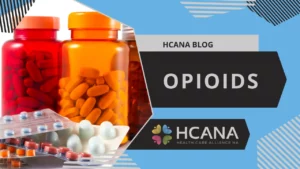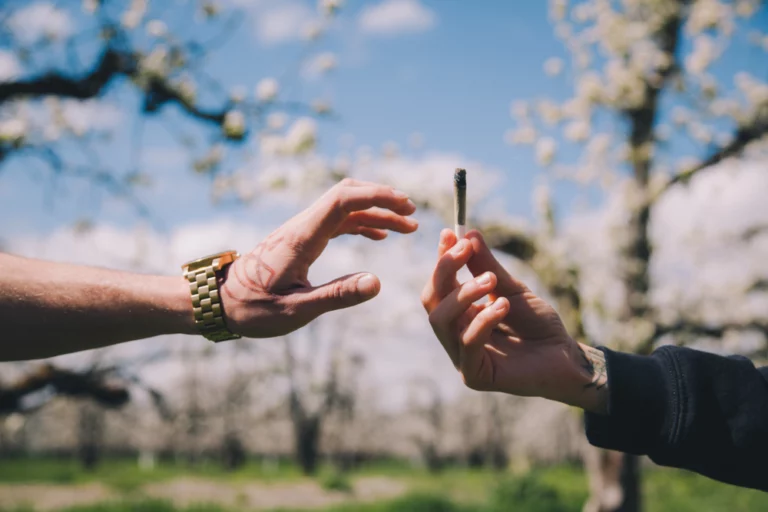When it comes to drug abuse, there are several different terms attached to it, as well as behaviors that are consistent with the four stages of addiction. For example, being dependent on opioids and being addicted to them are two separate conditions. We at Asheville Detox want to help clear away the fog by helping you understand where you may be at in your struggle with opiates.
Defining Opioid Dependence
Opioid dependence typically happens under the care of a physician. Perhaps the doctor has prescribed a prescription opioid and the patient has been taking it for six months or longer. It may have been given so that the patient could handle the pain that they have been experiencing due to a medical condition.
When an opioid is taken for this long, the body builds up a natural tolerance to it. When it is time for the individual to stop taking the medication, the doctor will need to slowly wean them off of the opioid, as their body has become dependent upon it. If the patient were to stop taking the opioid cold turkey, they would experience withdrawals.
What Is an Opioid Addiction?
Also known as substance abuse disorder, an addiction to opioids is a treatable illness that must be addressed quickly before devastating, life-long consequences come into play. When plagued with opioid addiction, you are physically dependent on the drug, but it is so much more. You decide to use the drug, no matter how harmful the consequences are going to be.
When you have an opioid addiction, every action that you take is influenced by your need to accommodate your brain’s pleasure center. As a result, your decision-making skills and sense of self-control are put on the back burner. Your overall well-being comes last, while your first priority is always getting the drug.
The Stages of Addiction
So, the question remains, how do you know if you are on your way to becoming an addict or not? Can someone become addicted to opioids overnight? Let’s take a moment to talk about the four stages of addiction.
1. Stage One: Experimentation
This is where the door was opened. Perhaps a friend or family member has offered you a pill, which is a prescription opioid. They have just told you that it is going to make you feel good, which it does. You may think this is going to be a one-time thing, but this is just the beginning.
With experimentation, peer pressure is many times the reason an individual takes it for the first time. They might want to feel accepted by their friends. Another possibility is that the person might be feeling stressed or anxious, and are looking for a way to mentally improve the way that they are feeling. Physical pain is another reason why people might try opiates in the first place. A huge amount of people who are now addicted to heroin started out taking someone else’s prescription drugs in order to feel relieve their physical pain.
Stage 2: Regular Use and Abuse
During stage two, something that was just a test of sorts, turns into more of a lifestyle choice. The individual finds that life is more comfortable or satisfying for them if they are using opiates. They are now using it as a way to get through everyday life. Time spent without doing their drug may be viewed as uneventful, and nothing will seem fun unless they are using opiates at the same time.
Ironically enough, that which is being used to entertain them eventually begins to bore them as well. At this point, users often report that they no longer hold any interest in doing things that they used to enjoy, and they have serious mood swings in-between times when they are using. The more they become dependent on the drug, the more they find that the drug is actually causing them to become anxious and depressed, rather than alleviating these feelings.
Stage 3: Dependency and Tolerance
At this point, the user has developed both a physical and psychological reliance on opiates. The brain no longer is naturally releasing dopamine, and relies on opiates to tell it when to do so. The brain begins to need more and more of the drug, as the tolerance for it has built up. The individual needs to take increased doses of the drug, just to try and feel normal again.
Now that dependency and tolerance have taken over, the individual may begin to take part in risk-taking behaviors. They may use the money they had set aside to pay the rent on drugs instead. They may start to hang out with unsavory or shady characters. Some may skip work in favor of getting high.
Stage 4: Addiction
When someone has become completely addicted to opiates, they have become comfortable with everything just mentioned above. All they can think about or act upon is how they are going to get their next high. Someone who is an addict may not even seem like they are the same person that you knew before.
When someone is an opioid addict, they might be able to think about quitting, but they will always use again. Even if they are making their loved ones miserable, their concern for them will never be greater than their need to get high. Addicted individuals often neglect their basic needs such as personal hygiene, eating meals, and getting enough sleep. Jobs are often lost, and poverty may cause them to live a life of begging or criminal behavior.
Seek Out Help at Asheville Detox
When reading about the four stages of addiction, did you find yourself existing somewhere in those words? We at Asheville Detox aren’t here to judge you, only to help you, wherever you are on your journey to recovery. If you can look at yourself honestly and admit that you have a problem with opiates, you have made an important discovery. Don’t wait until you lose complete control over your actions. Call us today and take charge of your life.










